The re·shape program, initiated by Wikimedia Deutschland together with neue deutsche organisationen in 2023, aims to make a contribution to knowledge equity in alignment with the movement’s strategy by focusing on the knowledge and communities that structures of power and privilege have left out. By supporting projects from marginalized communities in Germany, particularly those experiencing racism, we created and facilitated a space in which the possibilities and chances of Free Knowledge were explored from marginalized points of departure. Here I want to share our key learnings and the changes we made for the second round of the program.
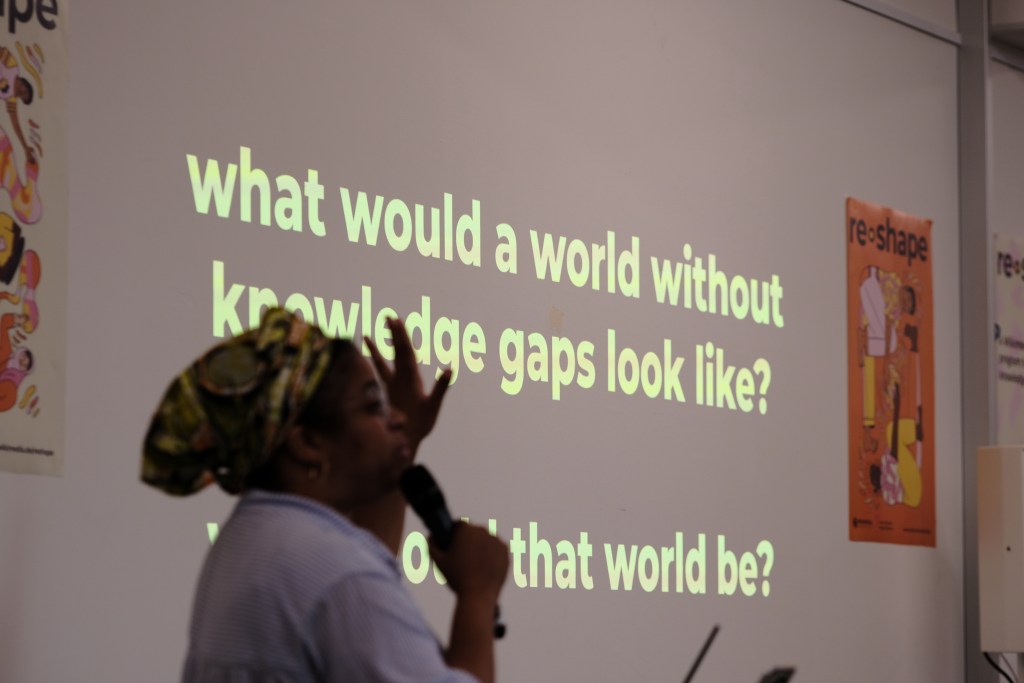
Kelly Foster speaking at the re•shape kick-off in Berlin, Photo by Christopher Schwarzkopf, CC BY-SA 4.0
Analysis of power and privilege
While working on the concept of re·shape in 2022/2023 we came – in cooperation with an external Board of Trustees – to the conclusion that sharing marginalized knowledge in the context of structural racism and a political shift to the right is something completely different than sharing knowledge from a more privileged position. Taking power and privilege into account was central in choosing the “Open by default” principle for the first year of the program. This principle allowed opting out of free licenses if there were valid reasons. By doing so we opened up the space of the possible and imaginable within the program. The approach gave us an insight and a better understanding of the concerns, including the potential distortion, misuse and commercialization of marginalized knowledge.
Within the program the fellows thus had the right to opacity (Édouard Glissant): the right to refuse and protect. This was an extremely important and conscious choice for us to make sure that we do not create more barriers and coerce anyone into making decisions they do not feel comfortable and safe with.
Needs based support
So due to the “Open by default” principle, choices could be made and to be able to make them the fellows needed to be provided with the necessary resources. To ensure that, re·shape had a mentoring program whereby the mentors accompanied the projects and gave insights into free licenses and Free Knowledge Projects. However the funded projects had a lot of questions regarding the project implementation that the mentors could not answer.
For me it was particularly interesting to be in conversation with the fellows and hear about the project’s needs and the questions on free licenses they were dealing with. Where we could we provided additional support. Some questions we could not sufficiently answer within the first round as we did not have the needed network within the German context to find someone suitable to discuss topics at the intersection of marginalized and Free Knowledge.
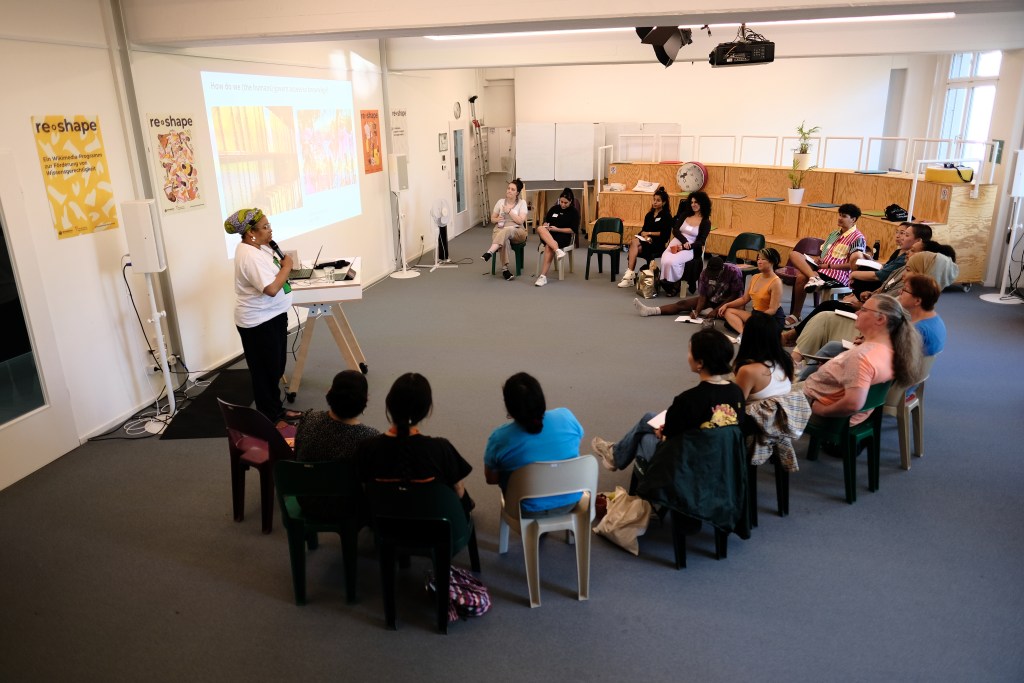
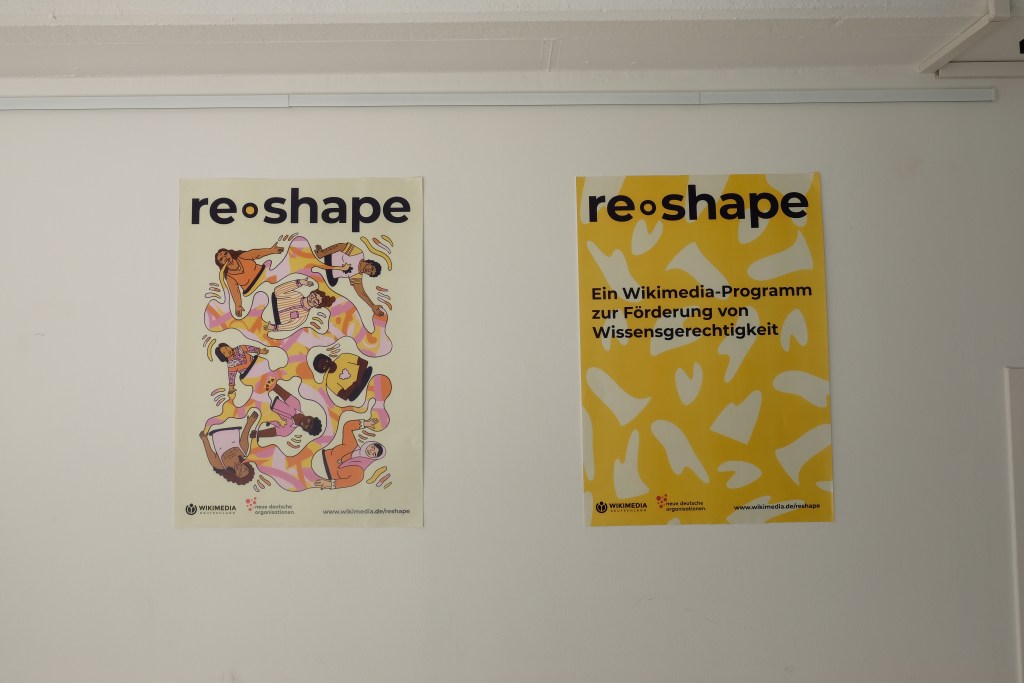
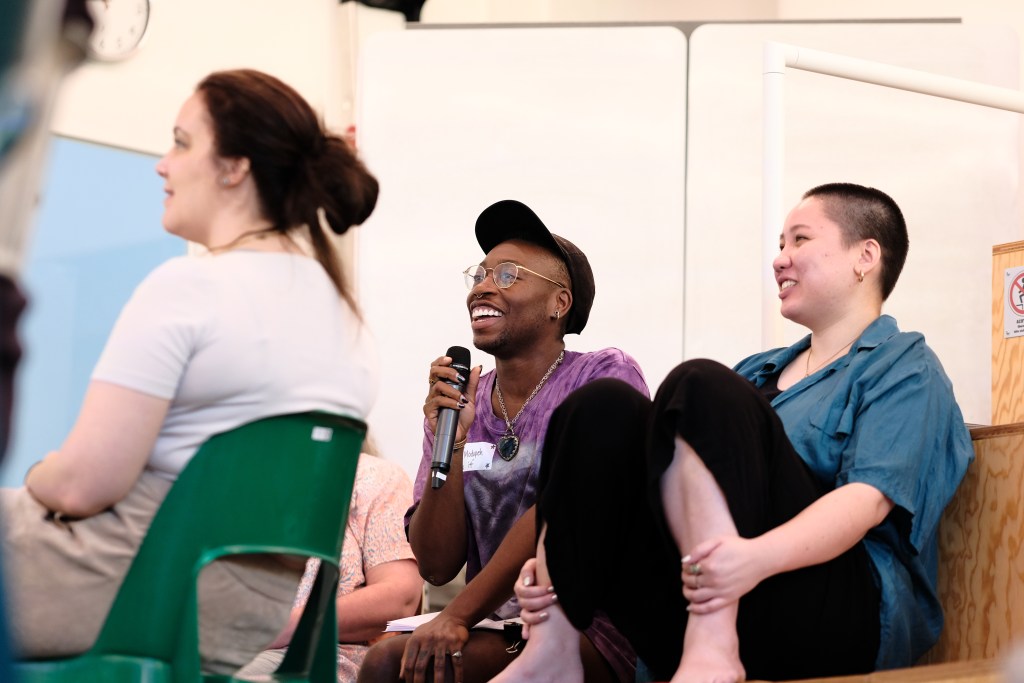
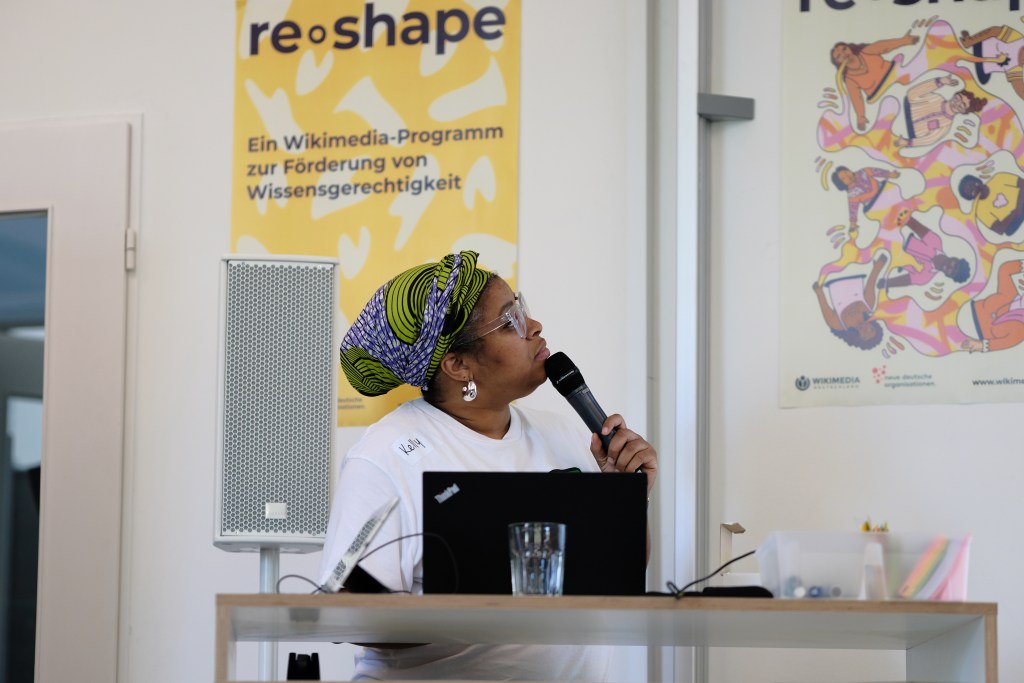
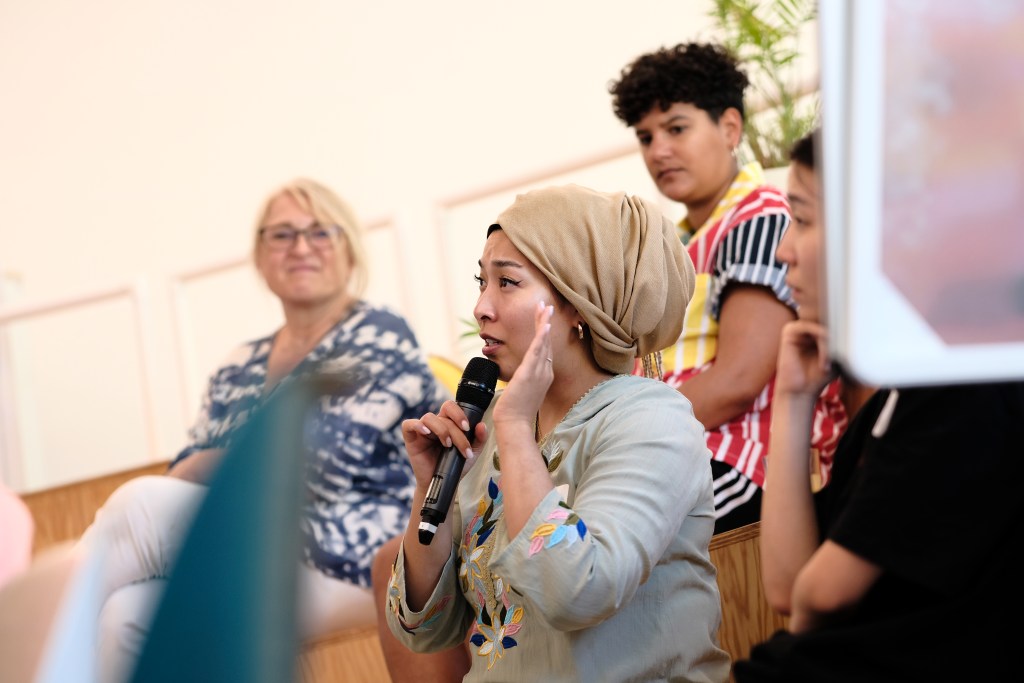
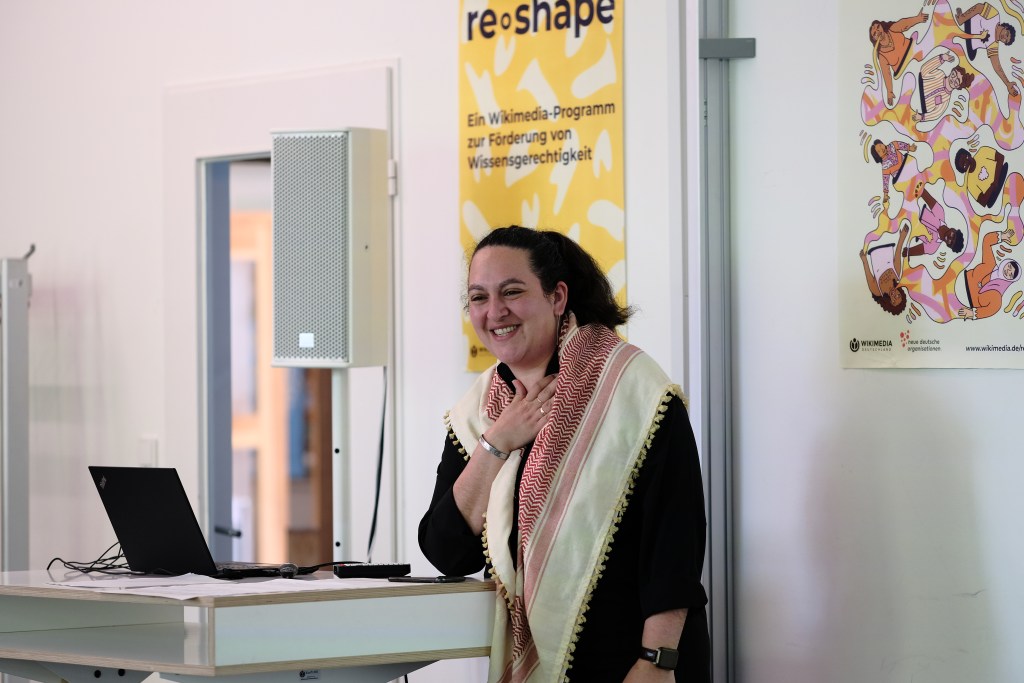
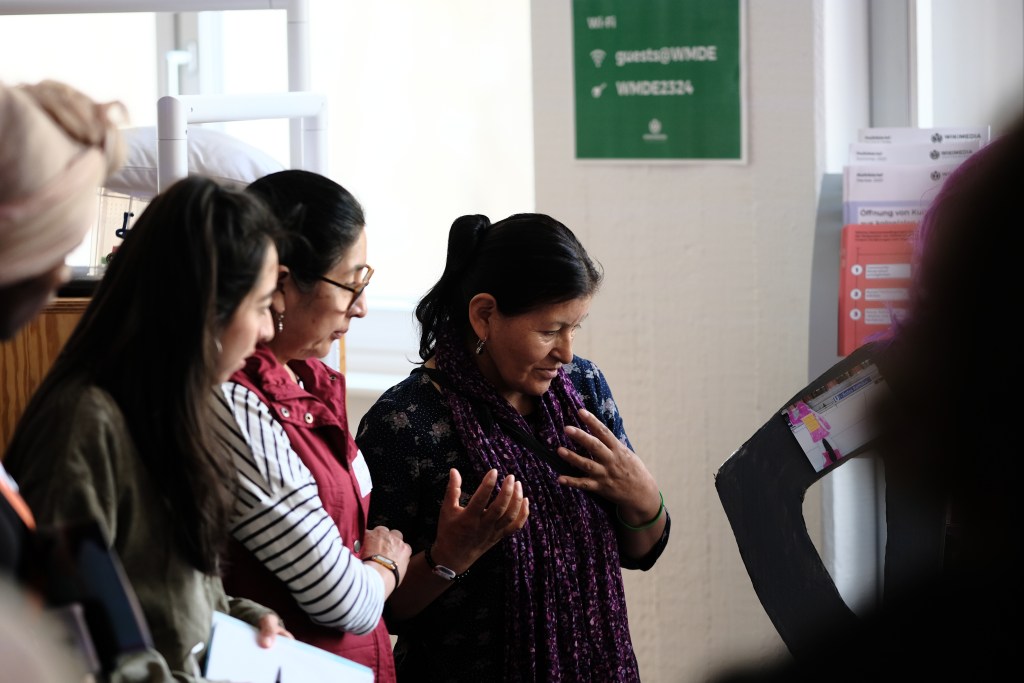
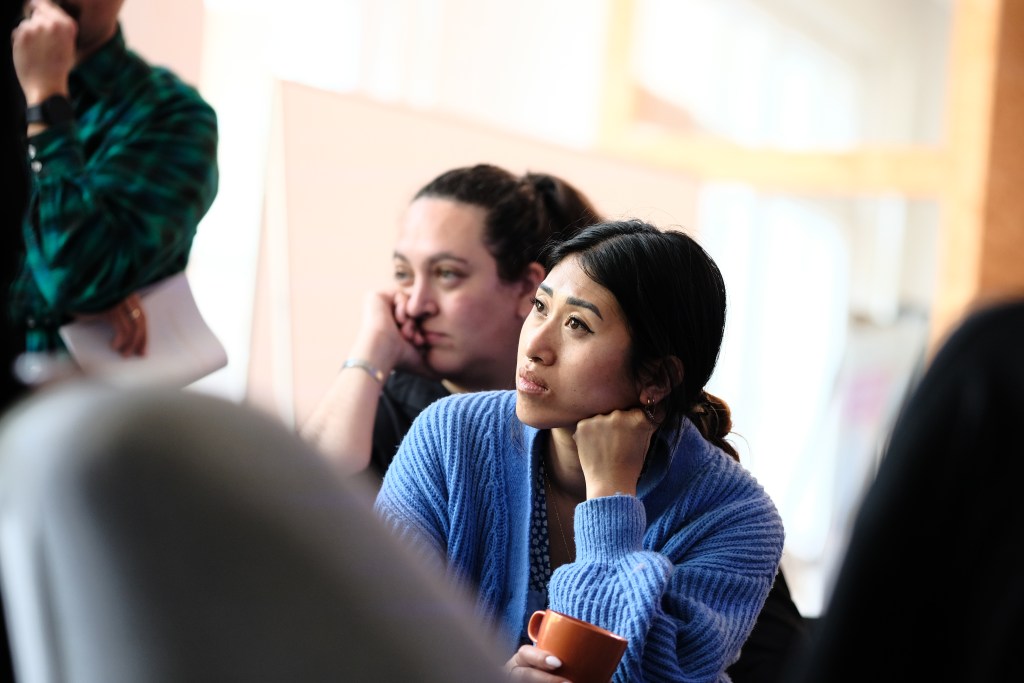
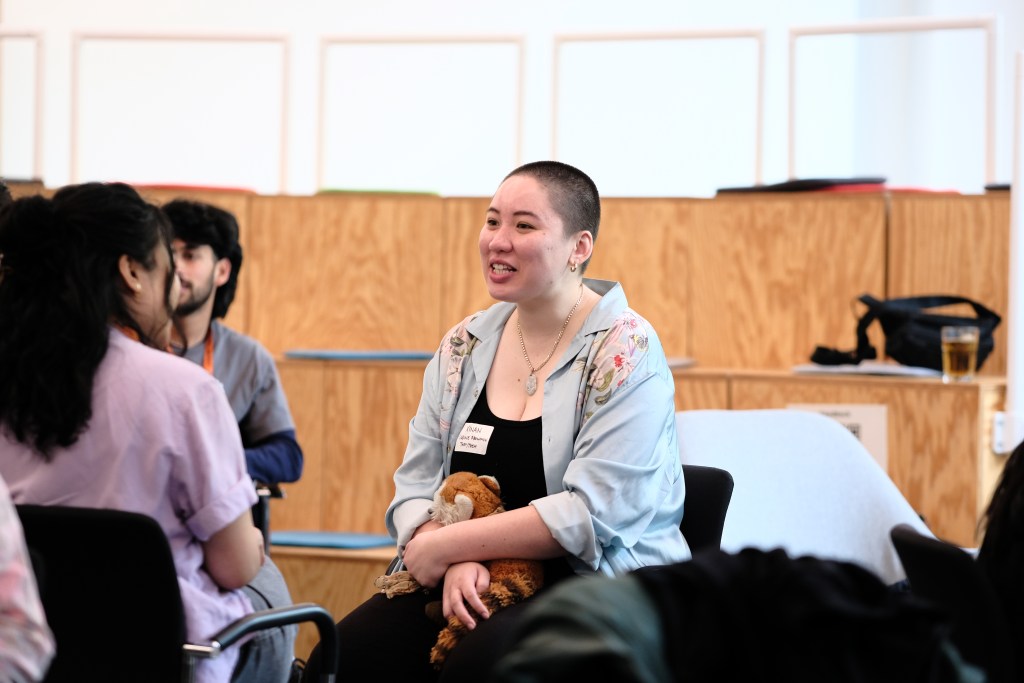
All photos by Christopher Schwarzkopf, CC BY-SA 4.0
International collaboration
What made it possible to carry out re·shape despite the lack of experience and best practices as well as knowledge and expertise at the intersection of marginalized and Free Knowledge within the German context – or at least our network at that time – was the rich and meaningful work at that intersection within the movement. For the Kick-Off we worked with Kelly Foster, an open knowledge advocate and public historian, chapter lead for Creative Commons UK and founding member of AfroCROWD UK, who gave us a critical introduction to Free Knowledge and particularly Wikipedia within the framework of knowledge justice/ knowledge debt: For Kelly none of the processes of knowledge production are neutral processes as they assign a value, and oftentime that value is reflected in the colonial logics of our time. Thus, Wikipedia is not neutral either. And still she chooses to make small but impactful interventions while being very aware of the fact that to achieve knowledge justice is a long term project and not to have knowledge gaps means a world transformed.
Additionally collaborating with Mariana Fossatti and Sunshine Fionah Komusana from Whose Knowledge? for a webinar on how to open knowledge while taking power into account was extremely valuable not only for the fellows but also for me as one of the project leads. Mariana and Sunshine shared their practices and approaches around opening up marginalized knowledge and it became clear that some protections are not provided for copyright nor CC. Sharing marginalized knowledge is thus not just about choosing a license. It is about the methods used to produce the knowledge in the first place and whether these methods themselves are ethical or extractive. Thus, protection cannot necessarily be ensured by the choice of the license but it can be provided by other agreements and conversations within the process of knowledge production, like social contracts with communities that have been exploited for centuries to make sure they feel safe, informed and involved in decision making.
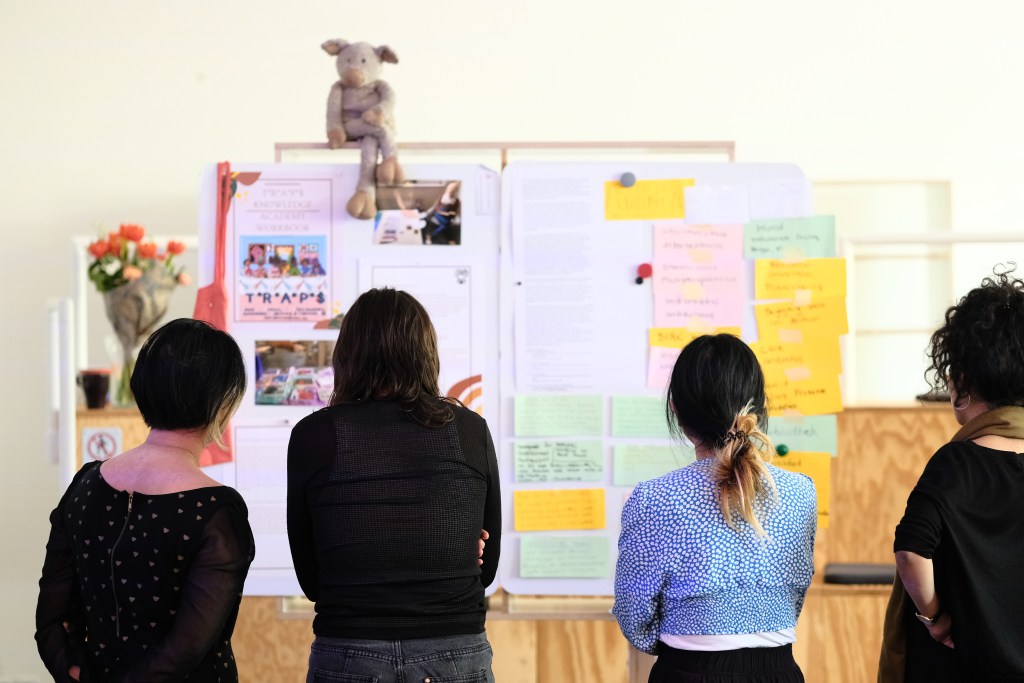
Changes
As valuable as the “Open by default” principle was in the first year of the program, the nature of the choice that can be made within the program will change for the second year of re·shape. It will not be about choosing the license but about making choices on the content that works for and should be published under a free license.
We also worked on extending our network to first disseminate the program beyond Berlin better and second to be able to draw from a wide range of expertise and experiences to offer needs based workshops and consultation instead of working with the model of a rigid mentoring program.
What we want to continue and strengthen in the second round are international collaborations to provide the fellows with the input and knowledge they need to be able to make informed decisions. We had the honor and privilege to be supported by people and a collective within the movement that have been working at the intersection of marginalized and Free Knowledge for years and that enriched the program with their experiences and critical take on Free Knowledge.
Working on re·shape in theory and practice has been an interesting experience and a collective exploration that informs so much of the work we do beyond re·shape. I am very excited to share that the application phase for the second round will start on August 15. I am looking forward to another round of collectively thinking about and exploring the possibilities and chances that Free Knowledge holds for the dissemination of marginalized knowledge.
You can find a comprehensive report on the first round of re·shape on meta.
For more information visit https://www.wikimedia.de/reshape/en/ or contact us via reshape@wikimedia.de

Can you help us translate this article?
In order for this article to reach as many people as possible we would like your help. Can you translate this article to get the message out?
Start translation